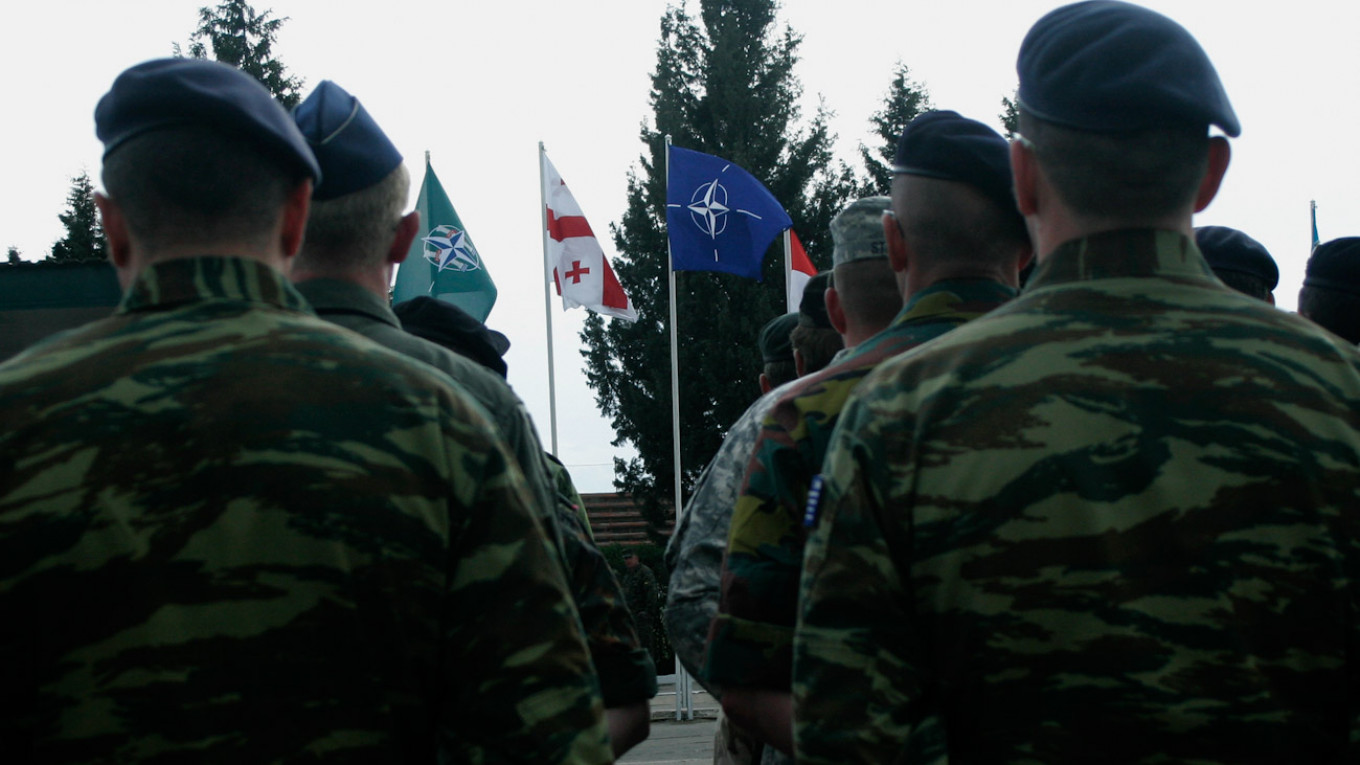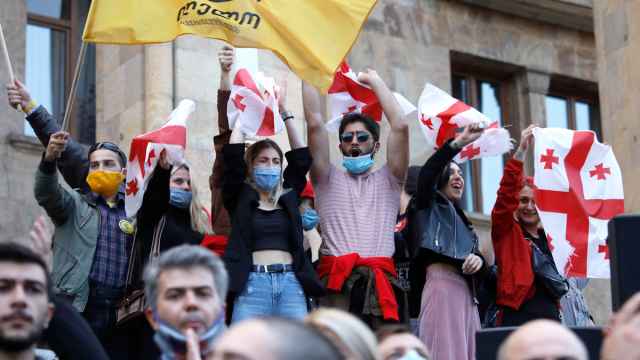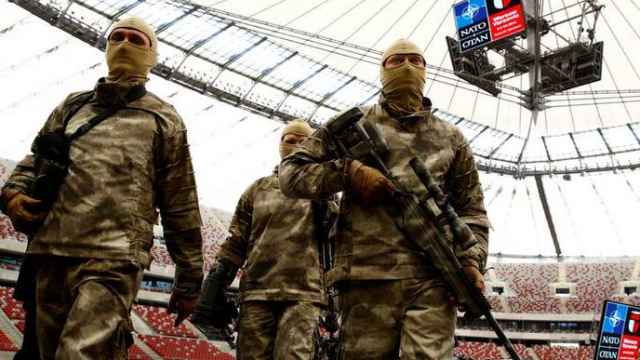NATO will involve Georgia in its regional security program to help protect the Black Sea country from Russia’s “aggressive” cyber- and misinformation threats, the Western military bloc said Wednesday.
Georgia's NATO ambitions have angered Russia since 2008, when NATO leaders promised the Russian neighbor that it would one day join the alliance. Russian President Vladimir Putin has warned NATO that cultivating closer ties with Ukraine and Georgia would have unspecified consequences for the alliance.
James Appathurai, NATO’s special representative for the Caucasus, outlined a four-step strategy for Georgian cooperation he dubbed “hybrid defense” in an interview with Georgia’s public broadcaster.
“This implies protection from the methods and means that Russia uses against other countries, for example, cyberattacks or misinformation, energy blockade, covert intelligence or military activity,” Appathurai said.
NATO also wants to involve Georgia in joint exercises and an airspace protection program in the face of a “deteriorating” Black Sea security situation following Russia’s annexation of Crimea in 2014, he added.
“Russia has used Crimea to increase its military presence in the Black Sea. It affects both us and Georgia and Ukraine,” Appathurai said.
Georgians have seen their chances of joining hampered by Russian territorial incursions into two breakaway territories, South Ossetia and Abkhazia.
Russian forces entered the two breakaway Georgian regions in 2008, which remain garrisoned by Russian troops to this day, something Moscow says is in keeping with local people's wishes but which the West and the Georgian government call an illegal occupation.
Moscow has previously said that Georgia's entry into NATO raised the risk of conflict because Russia recognizes the two regions as independent states.
Under NATO rules, countries with territorial conflicts cannot join the alliance.
A Message from The Moscow Times:
Dear readers,
We are facing unprecedented challenges. Russia's Prosecutor General's Office has designated The Moscow Times as an "undesirable" organization, criminalizing our work and putting our staff at risk of prosecution. This follows our earlier unjust labeling as a "foreign agent."
These actions are direct attempts to silence independent journalism in Russia. The authorities claim our work "discredits the decisions of the Russian leadership." We see things differently: we strive to provide accurate, unbiased reporting on Russia.
We, the journalists of The Moscow Times, refuse to be silenced. But to continue our work, we need your help.
Your support, no matter how small, makes a world of difference. If you can, please support us monthly starting from just $2. It's quick to set up, and every contribution makes a significant impact.
By supporting The Moscow Times, you're defending open, independent journalism in the face of repression. Thank you for standing with us.
Remind me later.






